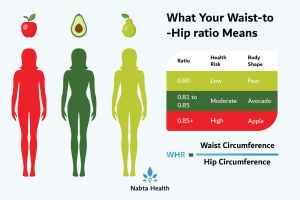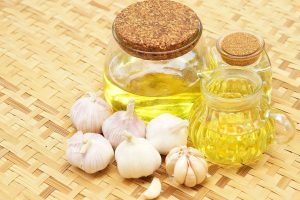5 Ways Women can Lose Weight With PCOS

- Women who have polycystic ovary syndrome (PCOS) can often struggle to lose weight.
- It is recommended by doctors to maintain a healthy body weight if you have PCOS.
- PCOS is hormonal condition with varying symptoms including either irregular periods, an increase in male hormones (androgens) and/or the development of small cysts on one or both ovaries.
- This can lead to health-related difficulties including getting pregnant, hair gain or loss and depression.
- Inflammation and insulin resistance are very commonly associated with PCOS and make it harder for women with this condition to lose weight.
- Rather than focusing on losing weight, women with PCOS can look at their diet holistically and measure success less by losing weight and more by ensuring they are getting the right nutritional intake.
It is no secret that PCOS is best treated with lifestyle changes rather than medication, and one of the key areas that healthcare professionals look at is weight and diet. If an overweight woman with PCOS can reduce her weight by just 5% this will have a positive effect on the hormonal imbalance and insulin levels. This is in turn will impact her menstrual cycle, ovulation, and chances of getting pregnant, along with alleviating other PCOS side effects. It is possible to still get your periods whilst having PCOS and so if you are struggling to lose weight and have other PCOS symptoms it is worth having your hormone levels tested.
Getting enough sleep, fitting regular exercise into your schedule, and managing stress all contribute to weight loss. However, diet is one of the largest factors that impact losing weight. If you have PCOS and you want to lose weight, don’t worry, there is plenty of support for you: At Nabta Health, we focus on empowering women with information and advice to help them reach their health goals.
Here are 5 dietary tips to help you lose weight with PCOS.
Make sure you are eating enough calories. Yes, really!
It is not often the first weight loss advice you are given is to avoid restricting the number of calories you eat! However, it is very important advice for women who have PCOS and have struggled with weight loss for a while. This is because your metabolism can be slowed down if you eat too few calories over a long period. Your metabolic rate manages how fast your body burns calories and when you follow a long-term restricted calorie diet your body will react by reducing the number of calories it burns. Over a shorter period, a low-calorie diet can result in some weight loss, but in the long term it can have the opposite effect with less calories being burned, resulting in weight gain.
Rather than reducing the amount you eat, it is recommended that women with PCOS choose healthy food swaps, replacing processed food and sugars with whole foods, whole grains and vegetables. https://pubmed.ncbi.nlm.nih.gov/29466592/
Increase the healthy bacteria in your gut.
Having PCOS can reduce the number of healthy bacteria in the gut. This directly impacts weight gain because healthy bacteria control how well your body metabolises food and in turn your weight.
One study has shown that the increase levels of the hormone testosterone are responsible for lowering the diversity of the microbiome in the gut. Women with PCOS often have increased male hormones and therefore their gut bacteria decrease, contributing to PCOS symptoms including weight gain. More research is is needed to determine whether specific gut bacterial species are responsible for the development of PCOS.
Probiotic supplements are advisable if you want to reintroduce gut biome diversity. In addition, adopting a diet that is high in probiotics is recommended. This includes yoghurt (with live bacteria) and fermented foods which will help increase the healthy bacteria in your gut.
Eat fewer carbohydrates
Eating a low carbohydrate, low GI diet reduces the levels of insulin produced by your body and will help women with PCOS to lose weight. This is because insulin resistance is a common side effect of PCOS. Insulin is created by your body to support the management and storage of sugar for energy. If you have insulin resistance, you will produce more insulin than you need. These high levels of insulin mean your body will store more fat and your weight is more likely to increase.
If you lower your carbohydrate intake, you will lower the amount of insulin your body creates and this impact on insulin levels can have a positive effect on PCOS symptoms.
In addition, if women with PCOS eat a diet that has a low glycemic index (GI) their bodies will be more capable of using insulin efficiently. GI is a measure given to all food and shows how fast blood sugar levels increase when you eat a particular food. The lower the GI the food has, the better your body can manage the production of insulin and fat storage.
Increase your protein intake
Increasing your protein intake is an easy way to support weight loss because research suggests that protein does not increase blood sugar levels, and it can help you feel fuller for longer.
A high-protein diet can also help you burn more calories, and manage hunger hormones.
Balance is important: you don’t have to start piling red meat onto your plate to eat a high protein diet. Protein is an essential nutrient in meats, fish, and certain vegetables, such as nuts, beans, and legumes. To make sure you are getting enough protein in your diet, try to vary the proteins you eat.
Studies have shown that women with PCOS, when given a high-protein diet with more than 40% of calories coming from protein lose significantly more weight than those given a diet with less than 15% protein.
Eat more fibre
It is very common for people globally to eat too little fibre. We should all be aiming for an intake of around 30g per day, which for many of us is a lot more than we are currently eating.
Fibre is a type of carbohydrate that passes through the body; we don’t store it and we don’t digest it. Found in fruits, vegetables, and whole grains we all need fibre for our bodies to function. Fibre can help you stay full after meal which may prevent overeating and weight gain.
In general, fibre helps keep stools soft, allowing them to move through the gut. If you don’t eat enough fibre, you may not be able to pass stools regularly or comfortably, and you are likely to experience constipation.
There is also evidence to show that a high fibre diet is particularly good for women with PCOS. A medical research study has shown high fibre intake is linked to insulin resistance and the amount of body fat measured on women with PCOS. This is not the case for women without PCOS.
For tips and ideas on healthy, balanced snacks and recipes, follow @nabtahealth on social.
Nabta is reshaping women’s healthcare. We support women with their personal health journeys, from everyday wellbeing to the uniquely female experiences of fertility, pregnancy, and menopause.
Get in touch if you have any questions about this article or any aspect of women’s health. We’re here for you.
Sources
“How much fibre should I be eating” BMI Healthcare https://www.bmihealthcare.co.uk/health-matters/health-and-wellbeing/dietary-fibre-function-recommended-intake-sources
Fletcher, J, “Which foods help stabilize insulin and blood sugar?” Medical News Today, May 2019 https://www.medicalnewstoday.com/articles/323529
Franz MJ, “Protein: metabolism and effect on blood glucose levels” Diabetes Educaction, Nov-Dec 1997 https://pubmed.ncbi.nlm.nih.gov/9416027/
Healthline 8 Fermented Foods and Drinks to Boost Digestion and Health https://www.healthline.com/nutrition/8-fermented-foods
Rondanelli, M et al “Focus on metabolic and nutritional correlates of polycystic ovary syndrome and update on nutritional management of these critical phenomena” Arch Gynecol Obstet, Dec 2014 https://pubmed.ncbi.nlm.nih.gov/25200687/
Sorensen, L “Effects of increased dietary protein-to-carbohydrate ratios in women with polycystic ovary syndrome” Am J Clin Nutr, Jan 2012 https://pubmed.ncbi.nlm.nih.gov/22158730










